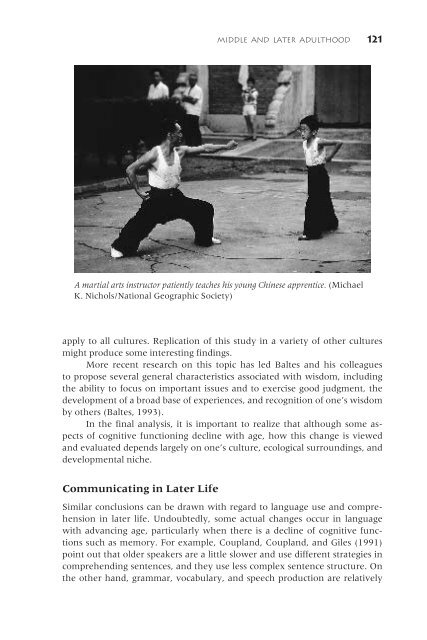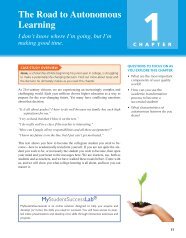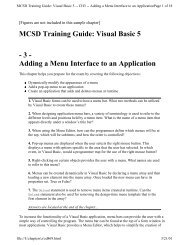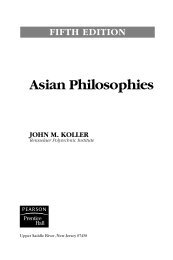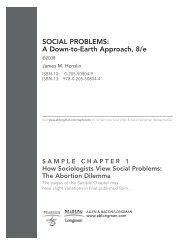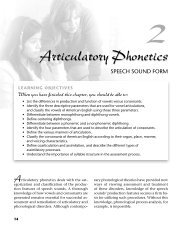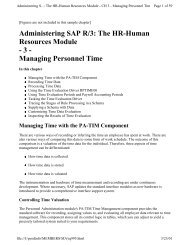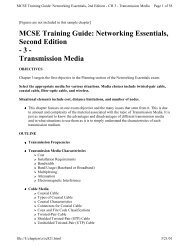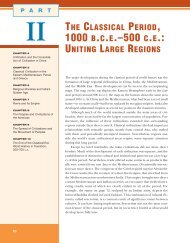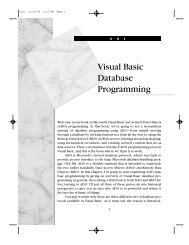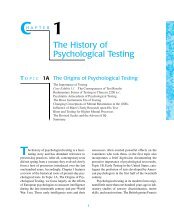CULTURE, language, AND COGNITION
CULTURE, language, AND COGNITION
CULTURE, language, AND COGNITION
Create successful ePaper yourself
Turn your PDF publications into a flip-book with our unique Google optimized e-Paper software.
GA305c05.qxd 4/30/2004 11:26 AM Page 121<br />
apply to all cultures. Replication of this study in a variety of other cultures<br />
might produce some interesting findings.<br />
More recent research on this topic has led Baltes and his colleagues<br />
to propose several general characteristics associated with wisdom, including<br />
the ability to focus on important issues and to exercise good judgment, the<br />
development of a broad base of experiences, and recognition of one’s wisdom<br />
by others (Baltes, 1993).<br />
In the final analysis, it is important to realize that although some aspects<br />
of cognitive functioning decline with age, how this change is viewed<br />
and evaluated depends largely on one’s culture, ecological surroundings, and<br />
developmental niche.<br />
Communicating in Later Life<br />
middle and later adulthood 121<br />
A martial arts instructor patiently teaches his young Chinese apprentice. (Michael<br />
K. Nichols/National Geographic Society)<br />
Similar conclusions can be drawn with regard to <strong>language</strong> use and comprehension<br />
in later life. Undoubtedly, some actual changes occur in <strong>language</strong><br />
with advancing age, particularly when there is a decline of cognitive functions<br />
such as memory. For example, Coupland, Coupland, and Giles (1991)<br />
point out that older speakers are a little slower and use different strategies in<br />
comprehending sentences, and they use less complex sentence structure. On<br />
the other hand, grammar, vocabulary, and speech production are relatively


